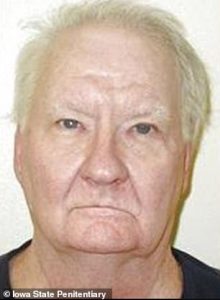When a criminal is sentenced to prison for the rest of his life, should he be allowed to walk free if he dies and then comes back to life? Well, 66-year-old convict Benjamin Edward Schreiber believes he should be made a free man after his heart stopped during a medical emergency in 2015. He has since claimed in front of a judge that his life sentence in prison should have come to an end because he technically died and lived a life behind bars.
Now, a judge has ruled that the convicted murderer must stay behind bars. Although he technically died and “finished” his life sentence, the judge ruled that the 66-year-old murderer would not get a free pass to walk out of prison for “finishing” his life sentence because he died and was brought back to life.

The Iowa judge ruled on Wednesday that Schreiber “is either still alive, in which case he must remain in prison, or he is actually dead, in which case this appeal is moot.” However, the media is giving Schrieber credit for trying to get out of his life sentence for technically dying back in 2015.
Schreiber was sentenced to life behind bars after he was found guilty of first-degree murder in 1996. Back in the 1990s, the criminal killed John Terry by bashing him to death with an ax handle. He was sentenced to life behind bars without parole for his violent crime.
The medical emergency would give the murderer a chance to fight for his freedom. Back in March 2015, Schreiber developed large kidney stones and had to be hospitalized. He developed septic poisoning in his blood, which caused him to lose consciousness in his prison cell while at the Iowa State Penitentiary.

The criminal was rushed to the hospital, where his heart had to be restarted a total of five different times. Even though the murderer had a “do not resuscitate” order in place, the hospital medical staff brought him back to life, according to court documents.
After he was revived following the heart problems, he was treated with antibiotics and ultimately recovered. He also had to undergo repair treatment for his kidneys.
Scheiber decided to fight his life sentence following his “death” in April 2018. That’s when he filed an application for post-conviction relief, claiming that since his heart had stopped, he had technically died and thus reached the end of his life sentence in prison. He claimed that after his heart stopped, he served the complete prison sentence that he had been sentenced to back in the mid-1990s.
In the court filings, Scheiber argued that he had been sentenced to life without parole “but not to life plus one day.” The lower court rejected Schreiber that his claim was “unpersuasive and without merit.” He appealed the lower court decision and was put in front of Judge Amanda Potterfield of the Iowa Court of Appeals. She upheld the lower court’s decision and refused to let the murderer walk free.





